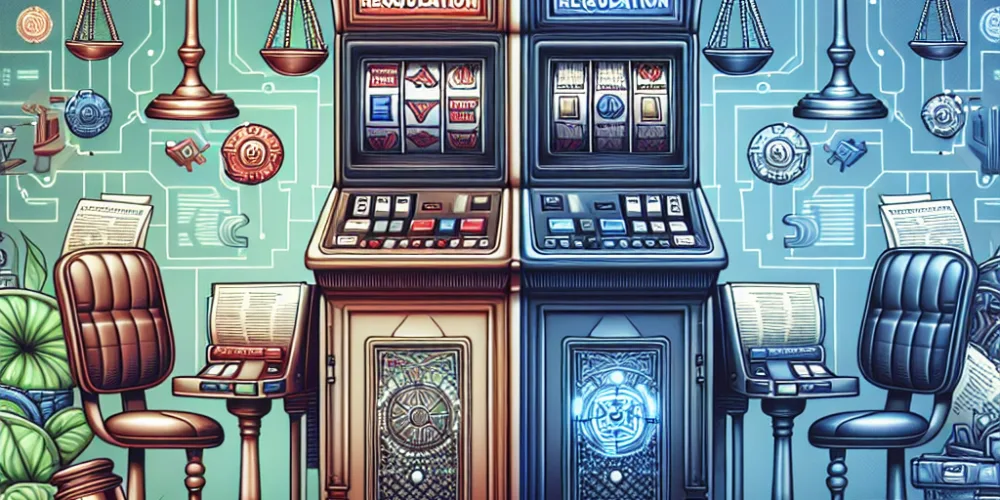In a significant development that could reshape the slot machine industry, a new legislative proposal introduced this week seeks to implement pioneering technology standards for slot machines, aimed at enhancing user experience and ensuring higher security measures. The proposed regulations, expected to be rolled out across several states by next year, will not only affect how slot machines operate but also how they are manufactured and integrated into casinos and other gambling establishments.
The legislation, brought forward by a coalition of lawmakers with backgrounds in technology, gaming regulation, and consumer protection, aims to integrate advanced digital security features and consumer-friendly interfaces into slot machines. “Our goal is to set a new standard in the gaming industry that prioritizes both innovation and user security,” stated Senator Jane Doe, one of the lead sponsors of the bill.
Under the new rules, slot machines will be required to feature updated software that includes fingerprint and facial recognition technology to help prevent unauthorized use and enhance player safety. Additionally, these machines will be equipped with sophisticated algorithms designed to monitor gaming patterns to help identify and mitigate potential gambling-related harms.
“This legislation is not just about upgrading technology; it’s about safeguarding our citizens and bringing our gaming industry into the 21st century,” added Senator Doe. The new technology standards will likely push manufacturers to innovate, leading to potentially significant shifts in the industry’s dynamics, including partnerships with tech companies and new product launches.
Casino operators are cautiously optimistic about the changes. While some are concerned about the short-term costs associated with implementing these new technologies, others see it as an opportunity to attract a new demographic of tech-savvy players. “Integrating these advanced technologies will not only enhance security but also improve the overall gaming experience, providing us an edge in a highly competitive market,” commented Michael Rivera, CEO of City Royal Casino.
The legislation also proposes the creation of a new federal oversight committee that will be responsible for monitoring the implementation of the technology and ensuring compliance with the new standards. This committee will also conduct ongoing reviews and updates of the technology requirements to keep pace with advancements in the field.
Industry experts predict that this push toward high-tech slot machines could spur innovation within the broader realm of casino games. “We are looking at a future where slot machines are not just slot machines but are interactive gaming experiences,” noted Emily Chan, an analyst at Gaming Market Insights. “This could lead to better customer engagement and even open up new revenue streams for casinos that are willing to innovate.”
However, the proposed changes are not without their detractors. Some critics argue that the increased costs of new machines could be detrimental to smaller casino operators. Others are concerned about the privacy implications of biometric data collection, suggesting that the legislation needs stricter safeguards to protect player information.
As debates continue, the proposed bill is set to be discussed further in committee hearings over the next few months, with a wide range of stakeholders, including gaming regulators, casino operators, machine manufacturers, and public health experts, invited to give testimony.
The outcome of this legislative initiative could set a precedent for other states or even countries to follow, potentially leading to a global shift in how technology integrates into the gambling and entertainment industry. As this story develops, it will be crucial to monitor the various perspectives and implications that may arise from such a transformative approach to a traditional sector.

David Farbacu is a seasoned writer with a passion for games, gaming, casinos, and Xbox. With a wealth of experience in the industry, David brings insightful reviews, comprehensive guides, and engaging articles that cater to both casual gamers and hardcore enthusiasts. His expertise spans across various gaming platforms and genres, making him a go-to source for the latest trends and developments in the gaming world.

